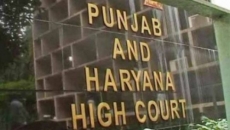Chandigarh, May 8 (IANS) Punjab Chief Minister Bhagwant Mann on Monday announced launching a drive to preserve the flora and fauna along with recharging the water table to save water for the coming generations.
Addressing a gathering after laying the foundation stone of the Chitti Bein in Simbli in Hoshiarpur district, the Chief Minister said Punjab is a sacred land of great Gurus and saints, who have shown the way to preserve the environment.
He said, following in the footsteps of the Gurus, the government would soon embark upon a campaign to preserve the natural resources of the state.
ਗੜ੍ਹਸ਼ੰਕਰ ਦੇ ਪਿੰਡ ਸਿੰਬਲੀ ਵਿਖੇ ਚਿੱਟੀ ਵੇਈਂ ਪ੍ਰੋਜੈਕਟ ਦਾ ਨੀਂਹ ਪੱਥਰ ਰੱਖਿਆ…ਲੋਕਾਂ ਦੀ ਲੰਮੇ ਸਮੇਂ ਦੀ ਪਾਣੀ ਦੀ ਮੰਗ ਨੂੰ ਅੱਜ ਬੂਰ ਪਿਆ…
— Bhagwant Mann (@BhagwantMann) May 8, 2023
ਹੈਰਾਨੀ ਹੁੰਦੀ ਹੈ ਜਿਹੜੇ ਸੂਬੇ ਦਾ ਨਾਮ ਪਾਣੀਆਂ ‘ਤੇ ਹੋਵੇ ਉੱਥੋਂ ਦੇ ਲੋਕ ਅਜੇ ਤੱਕ ਪਾਣੀ ਨੂੰ ਤਰਸ ਰਹੇ ਸੀ…ਅਸੀਂ ਲੱਗੇ ਹੋਏ ਹਾਂ ਪੰਜਾਬ ਦਾ ਕੋਈ ਵੀ ਪਿੰਡ ਪਾਣੀ ਪੱਖੋਂ ਵਾਂਝਾ ਨਹੀਂ… pic.twitter.com/fA1PWRHu6a
He said while there is no dearth of funds for this noble cause, he called upon people to support it and make the campaign a mass movement.
The Chief Minister, while slamming the Opposition parties for blatantly ignoring the environmental issues, said that as water, air and land had no votes, so these leaders ignored them.
He said after the formation of the AAP government in the state, steps have been taken to save the environment.
The Chief Minister said since long, the successive state governments had also ignored the core sectors of health and education.
However, he said, after the formation of his government, complete transformation of these sectors have taken place.
Mann said due to efforts of the government, Punjab will soon be a front ranking state across the country in these sectors.
The Chief Minister said the government is taking steps for optimum utilisation of the canal water to save the groundwater.
He said that currently, Punjab is using only 33-34 per cent of its canal water, adding this will be enhanced in the coming days.
Mann envisioned that if Punjab can enhance the canal water utilisation to 60 per cent in first phase then nearly four lakh tubewells out of total 14 lakh can be stopped, thereby helping in saving water.






